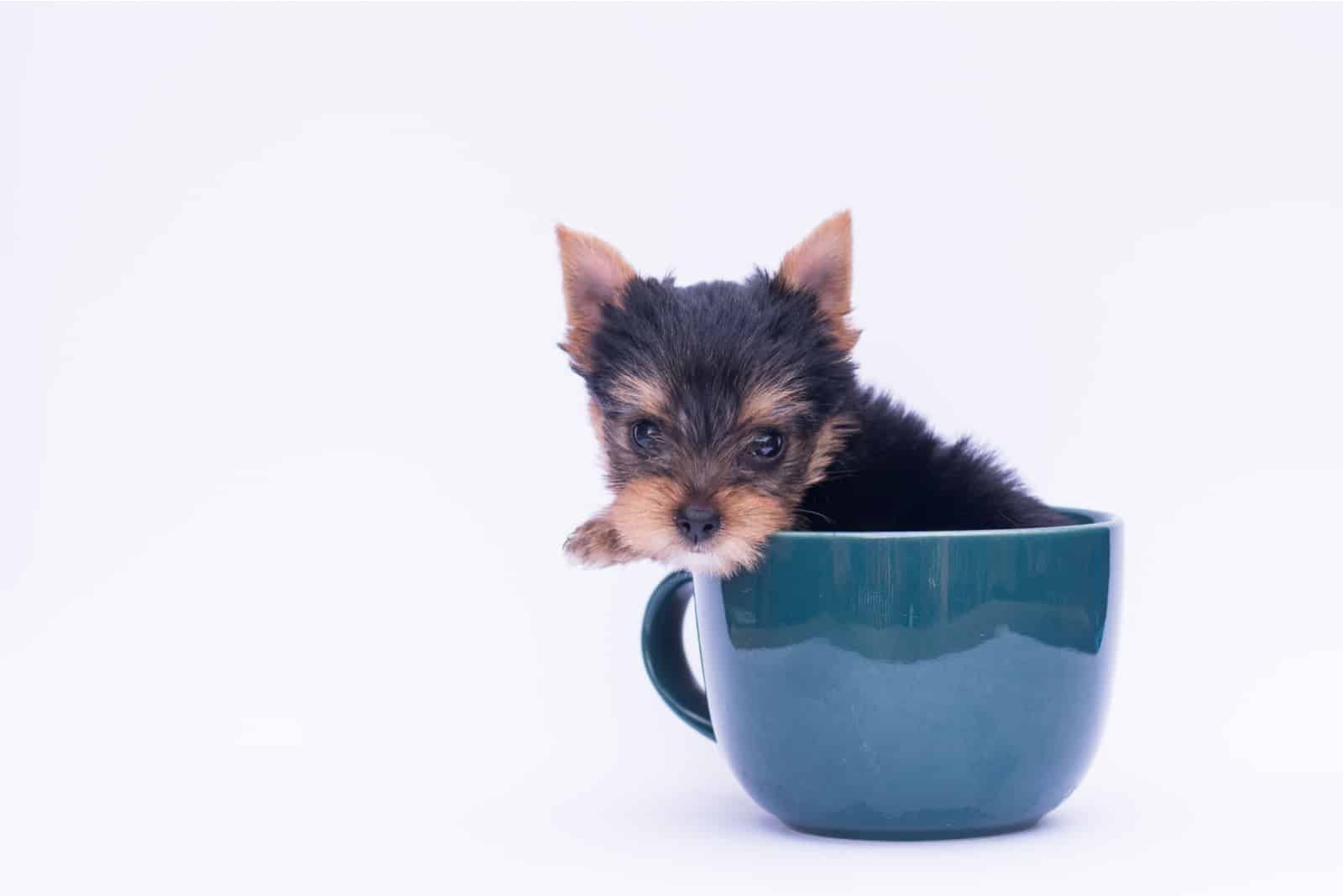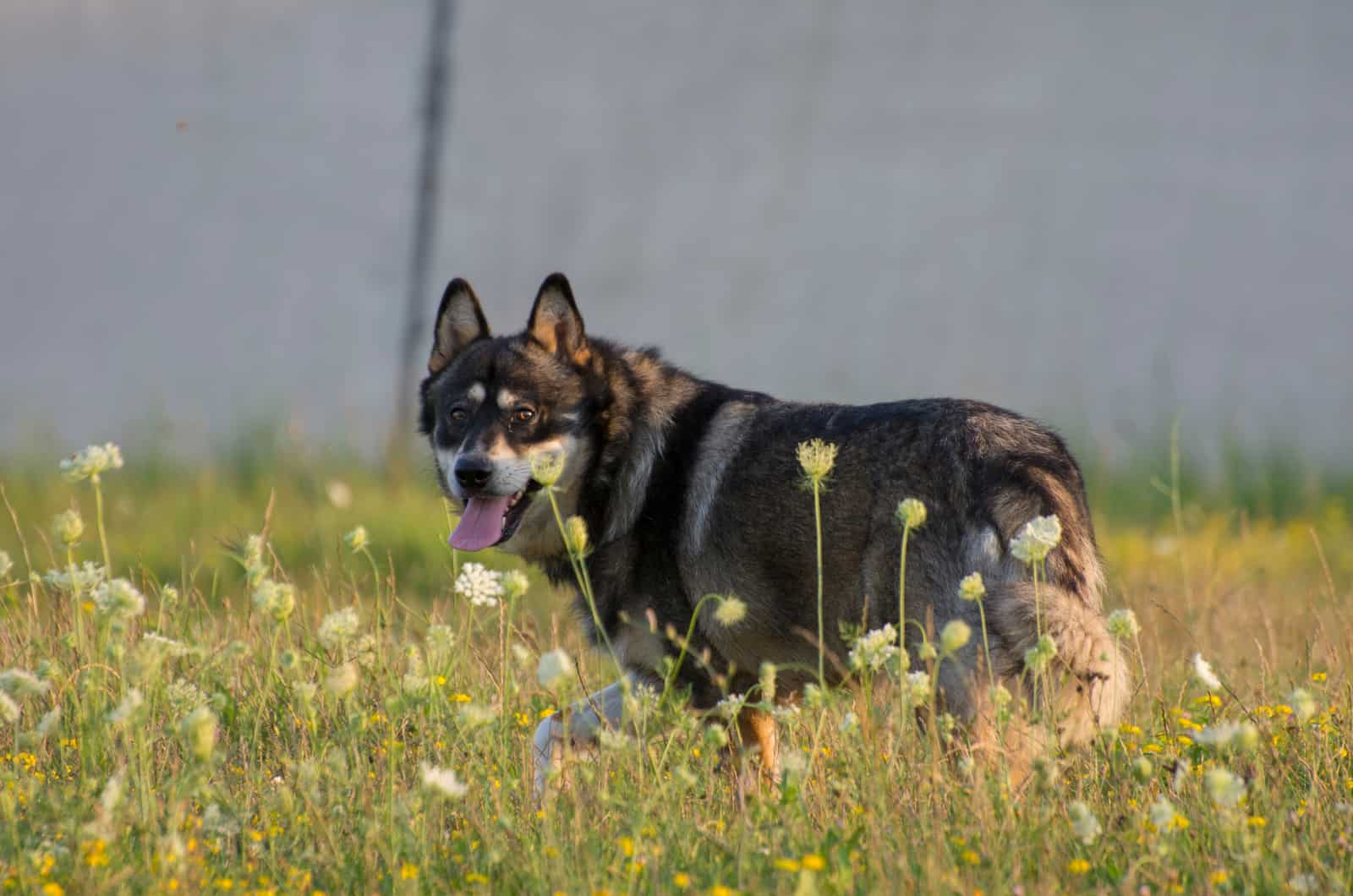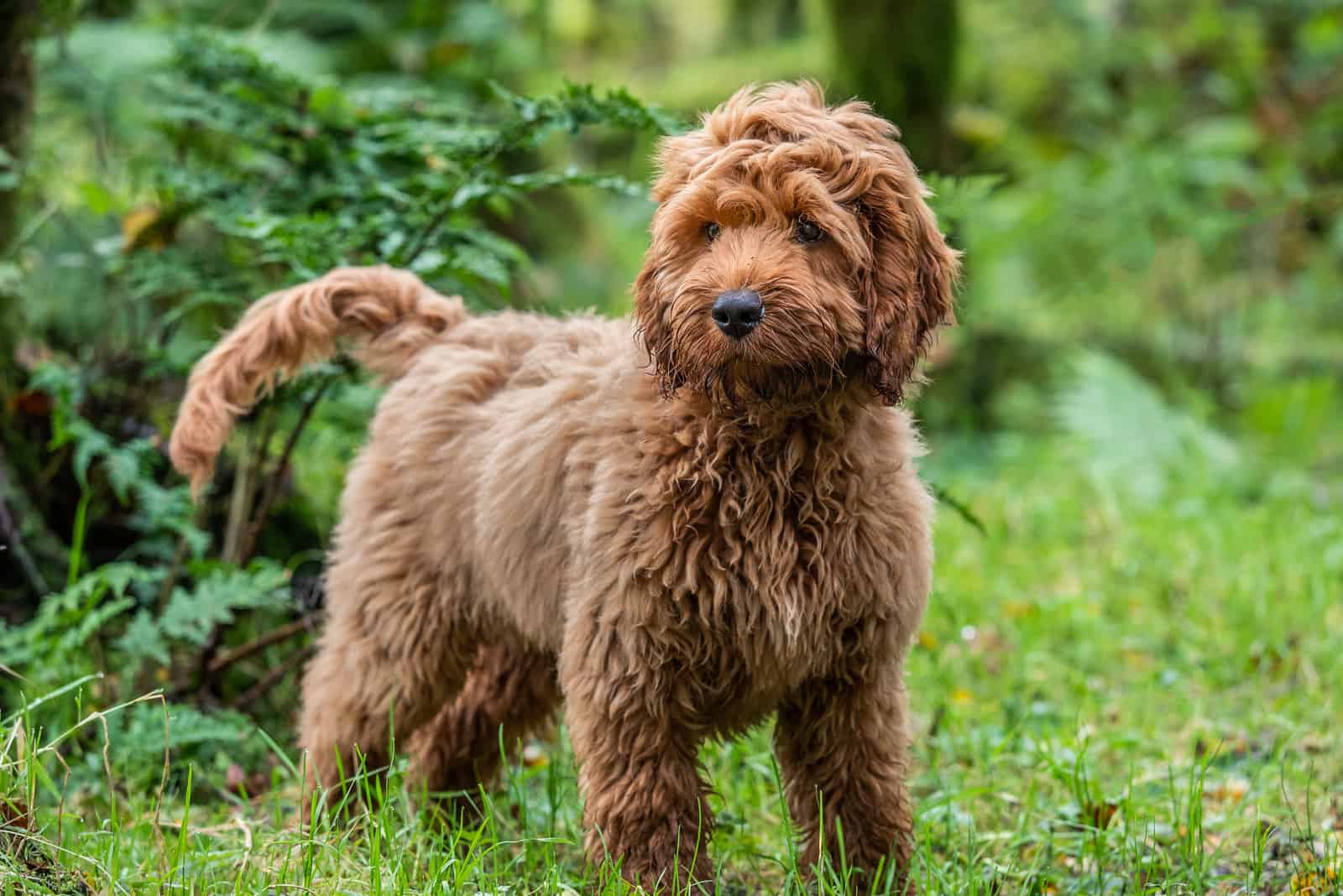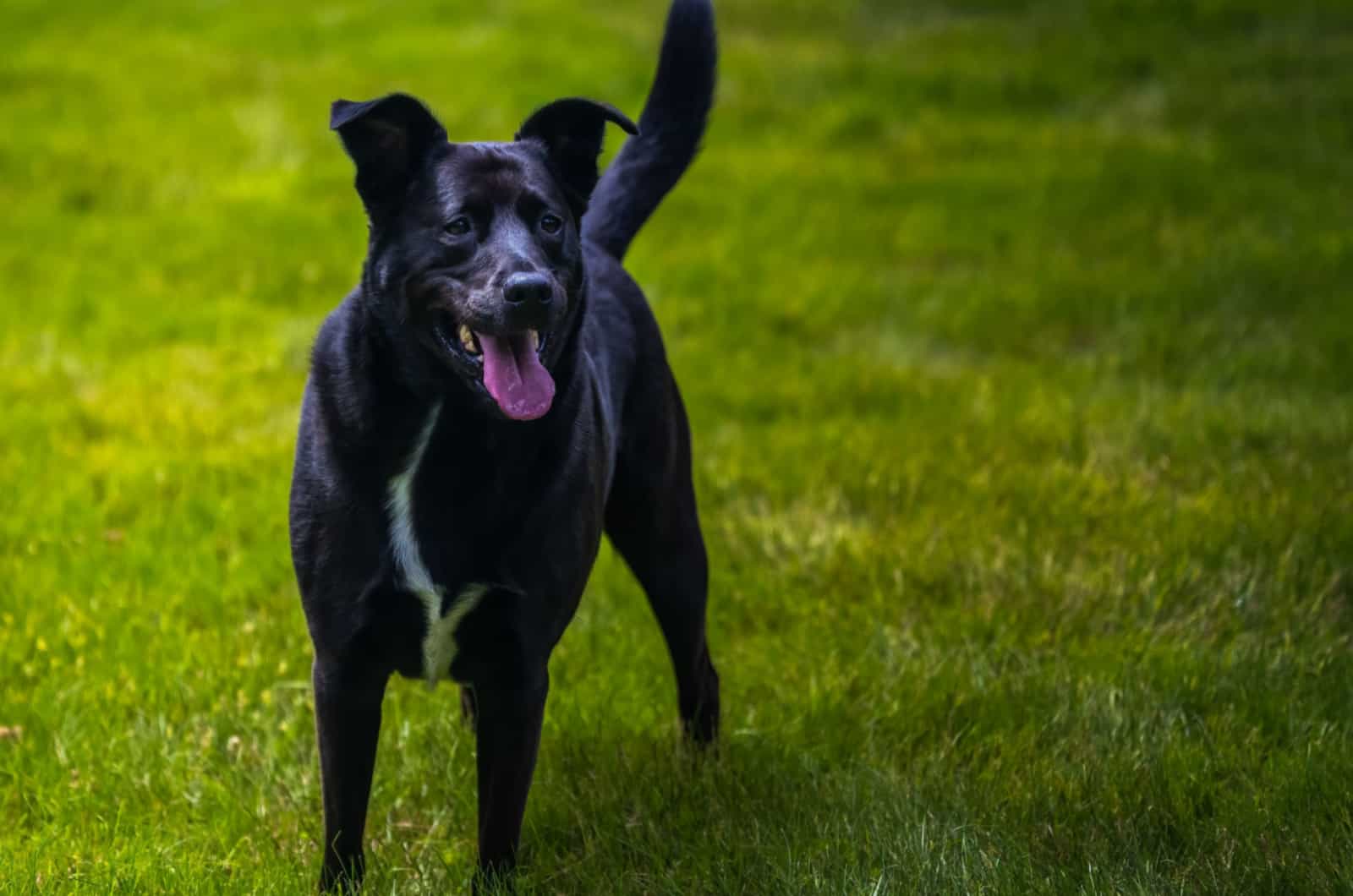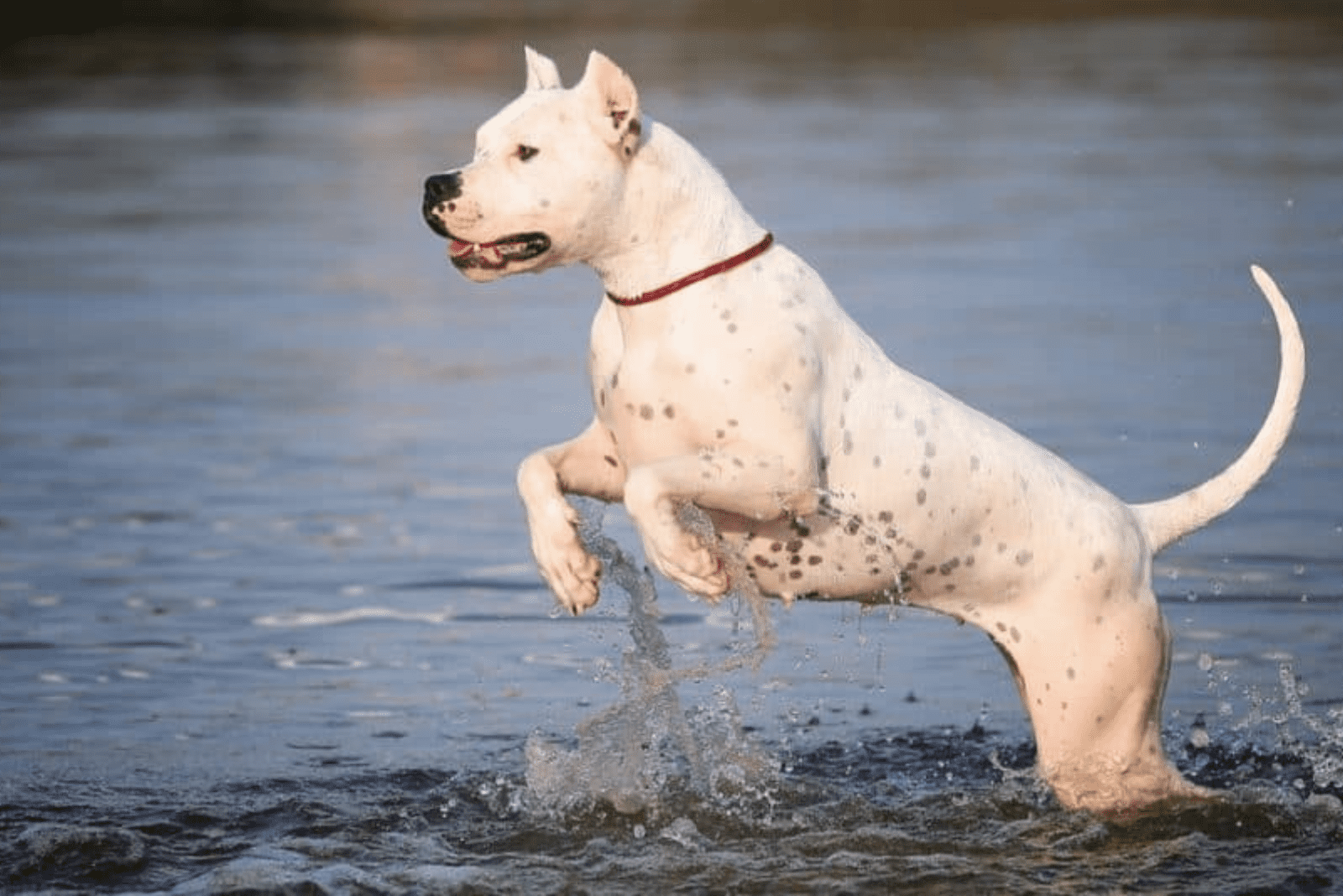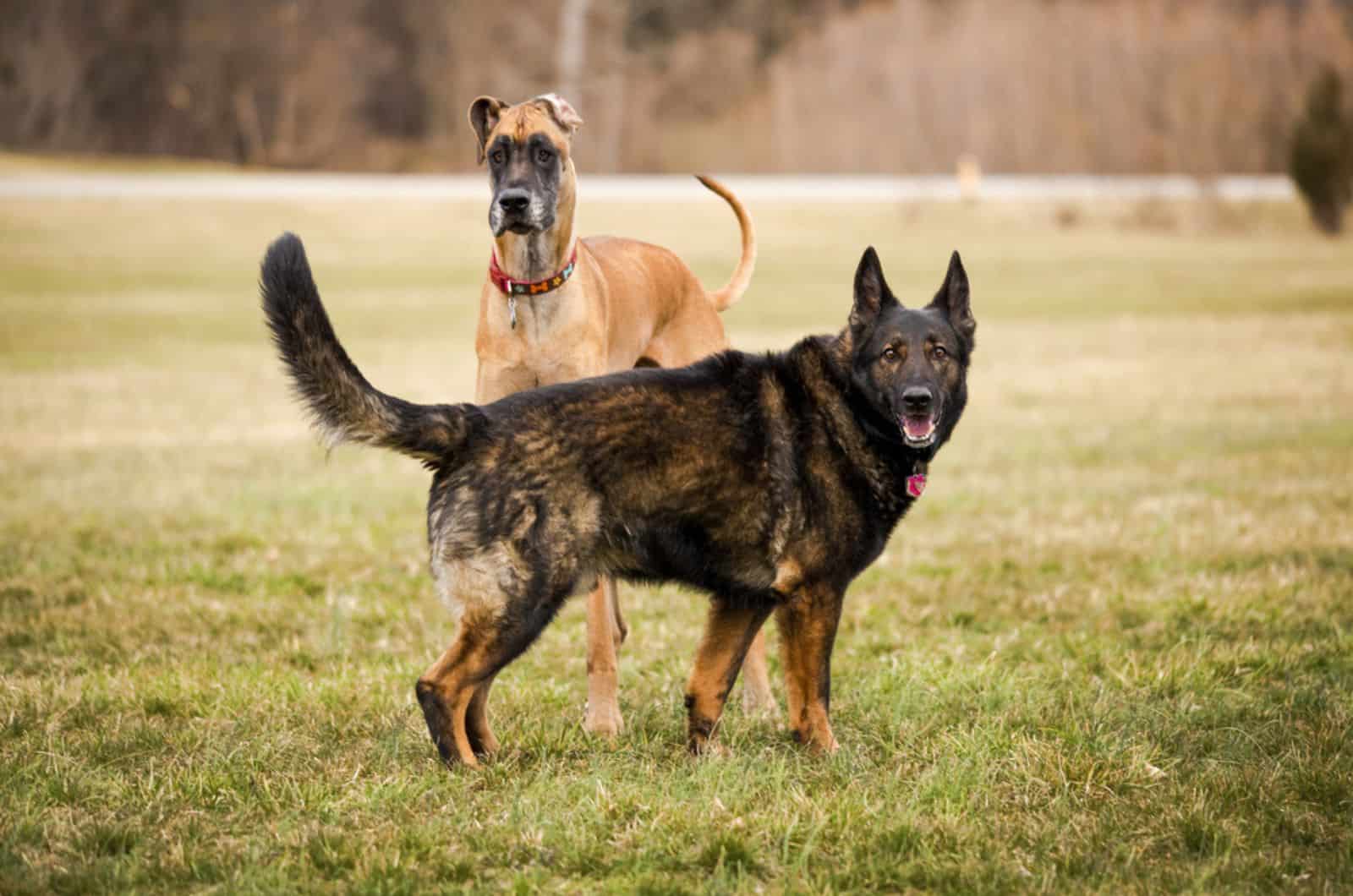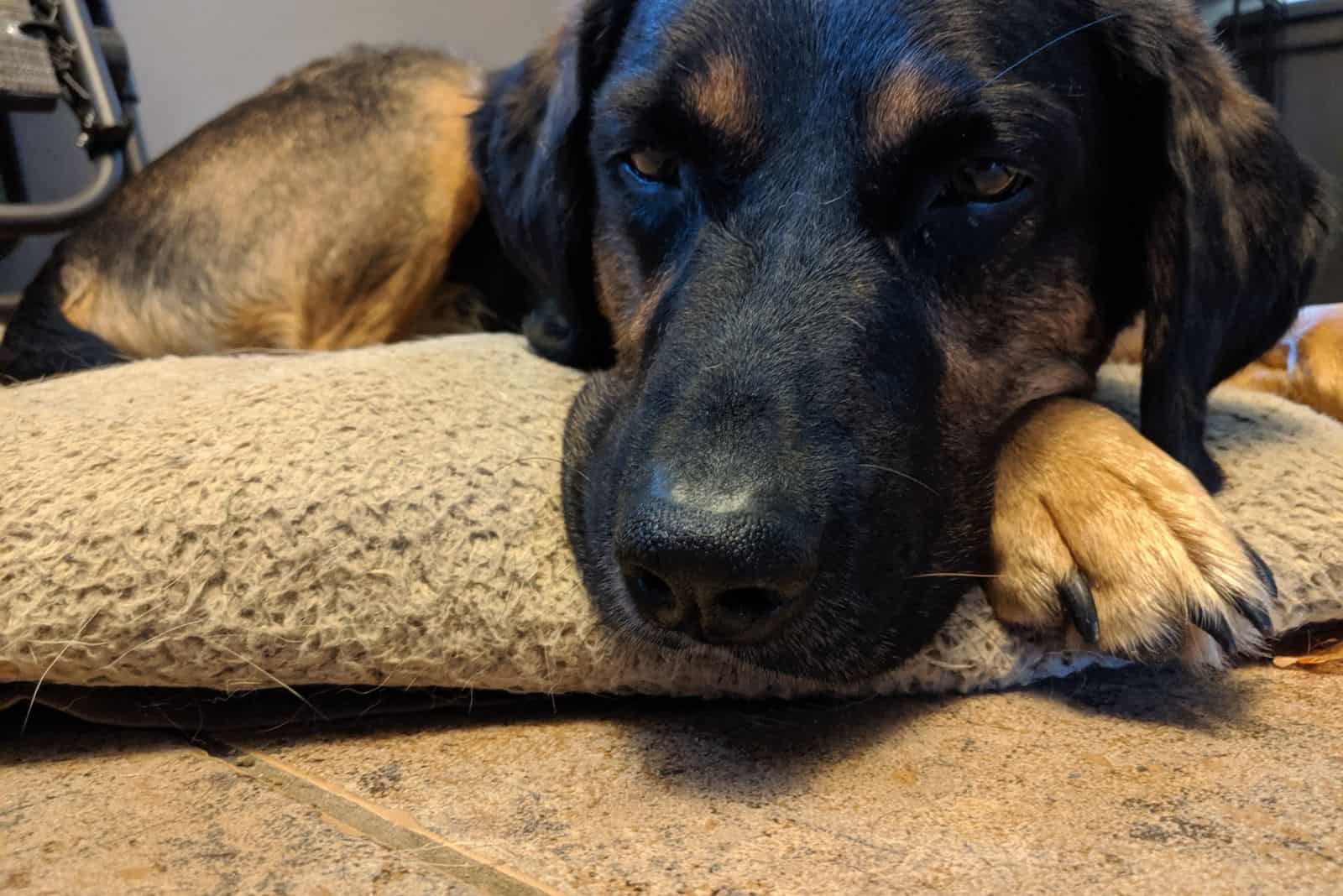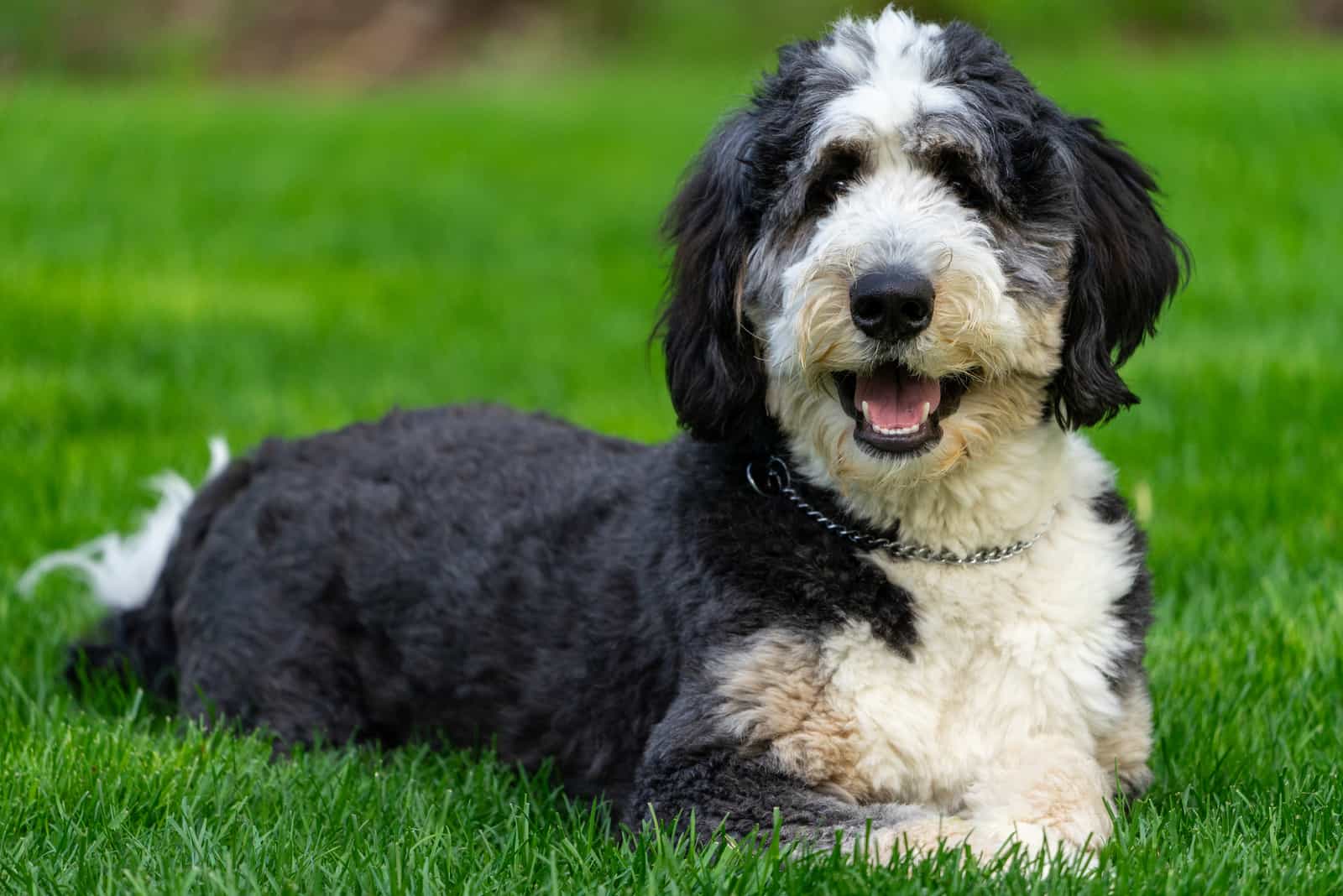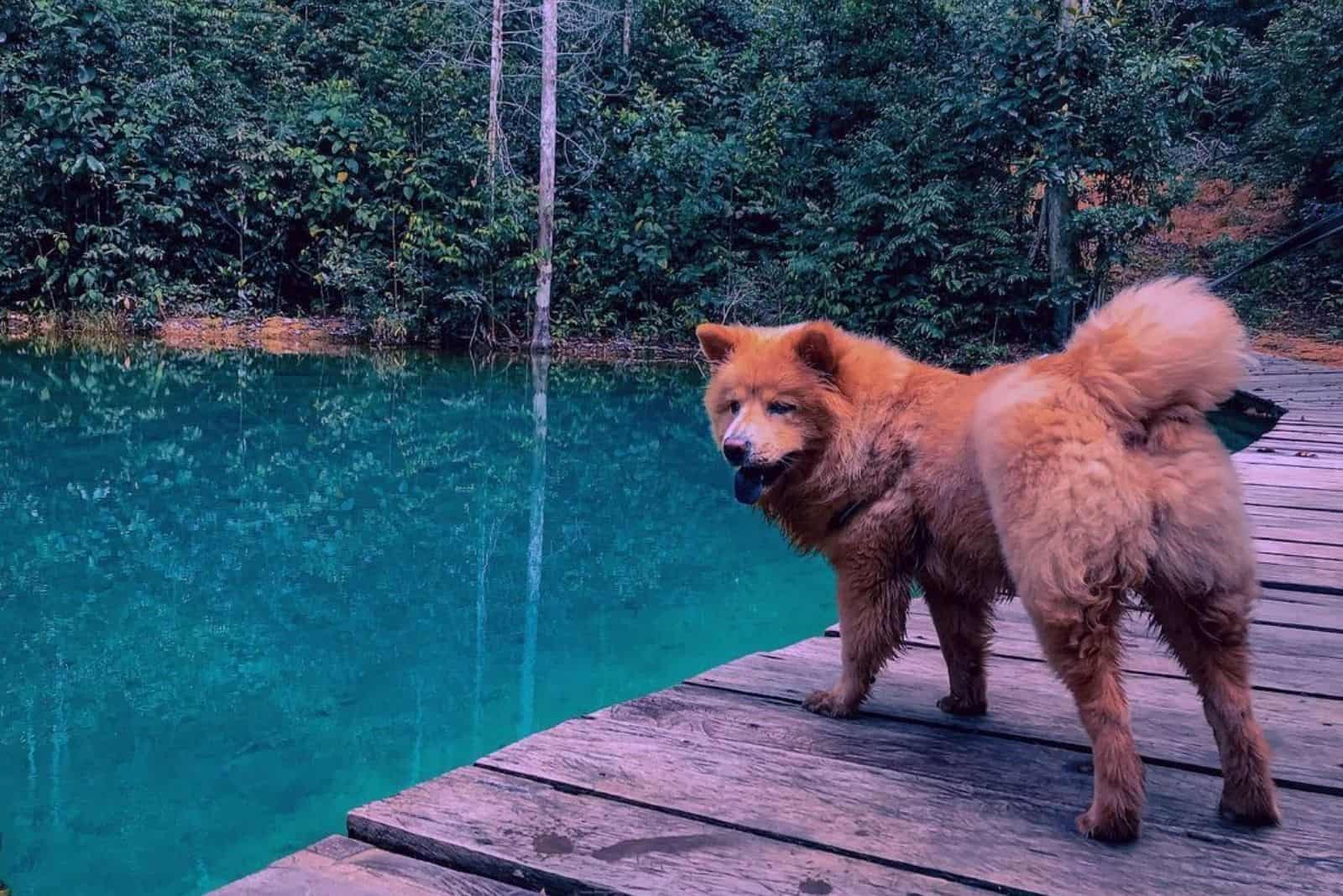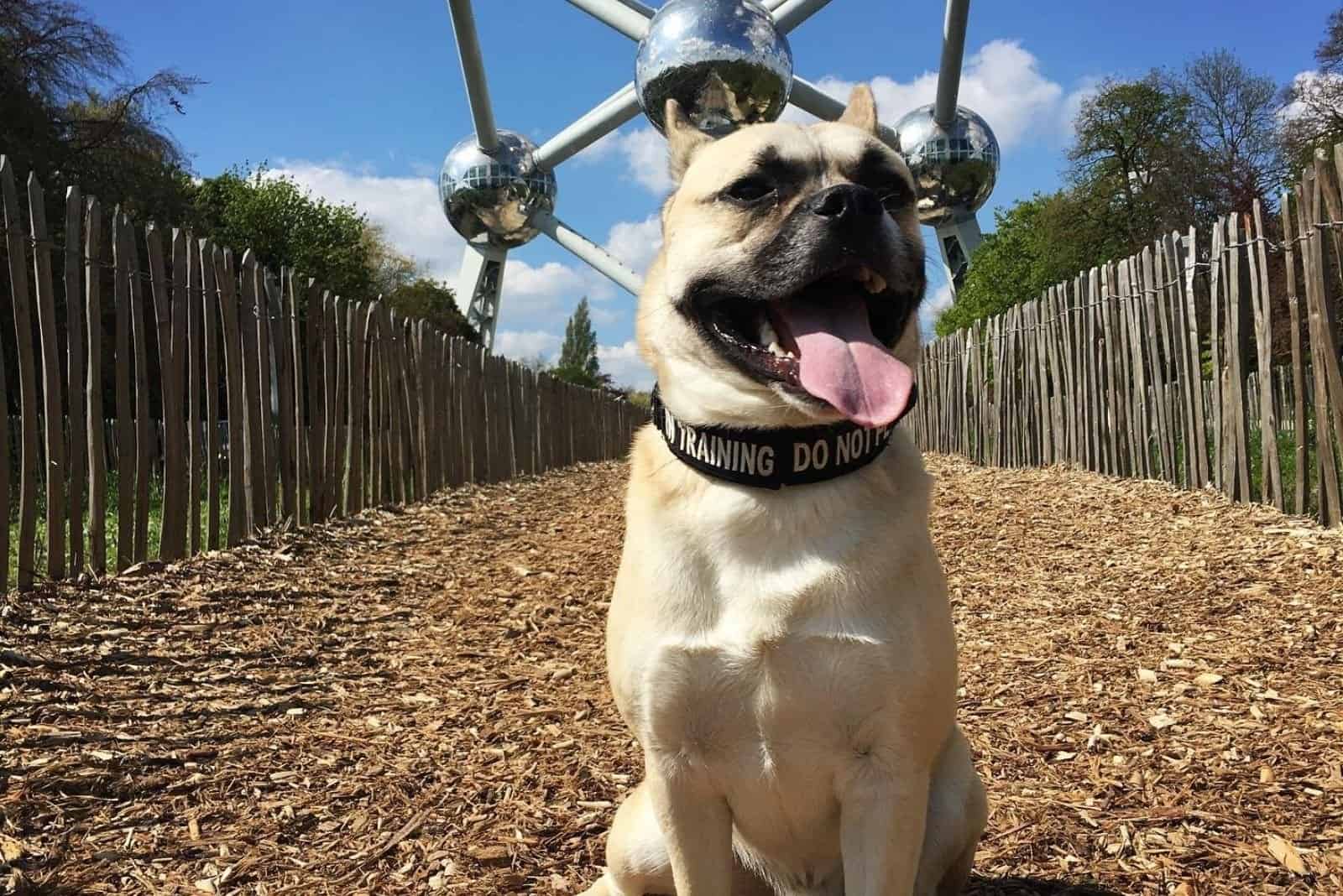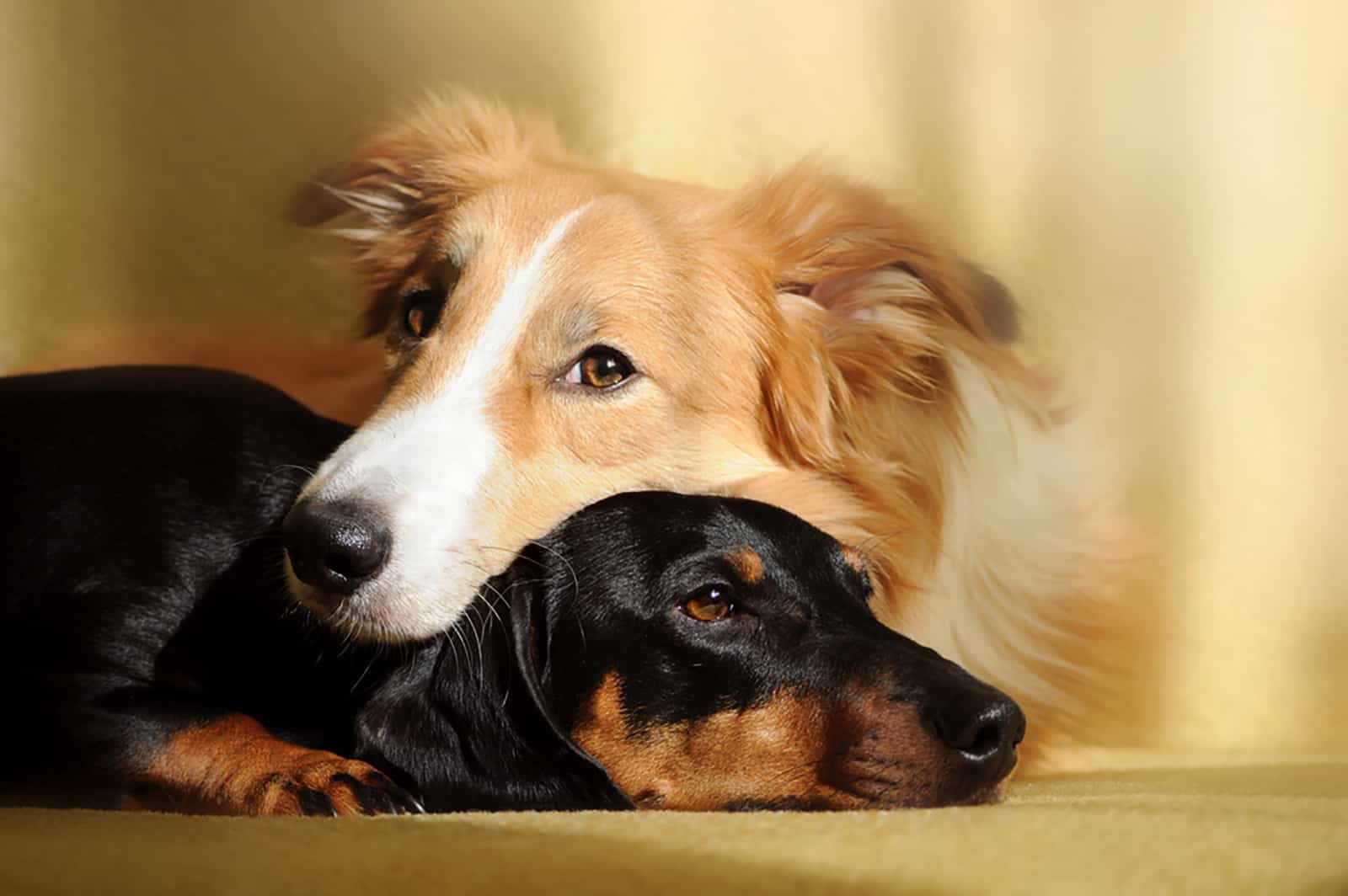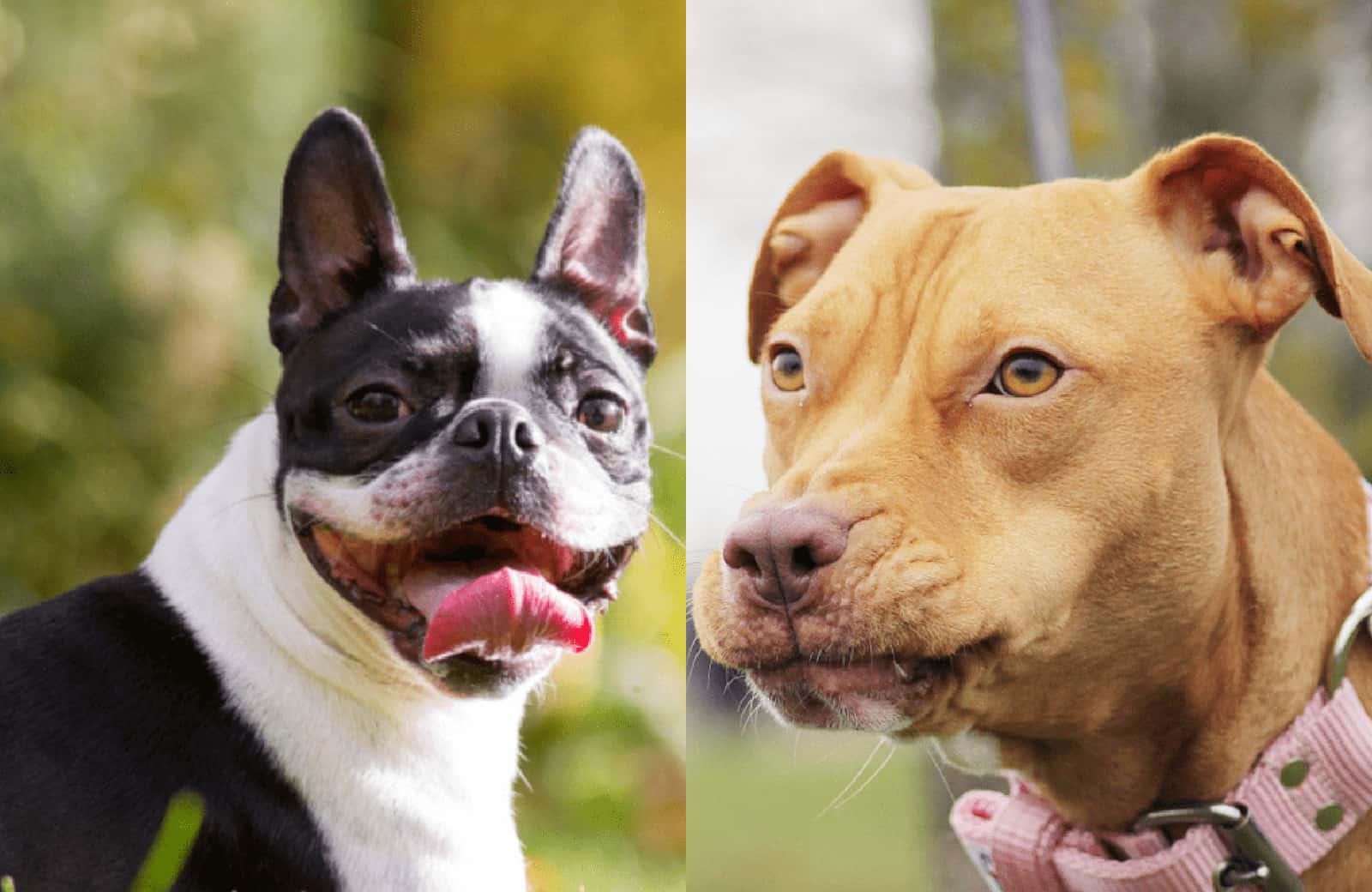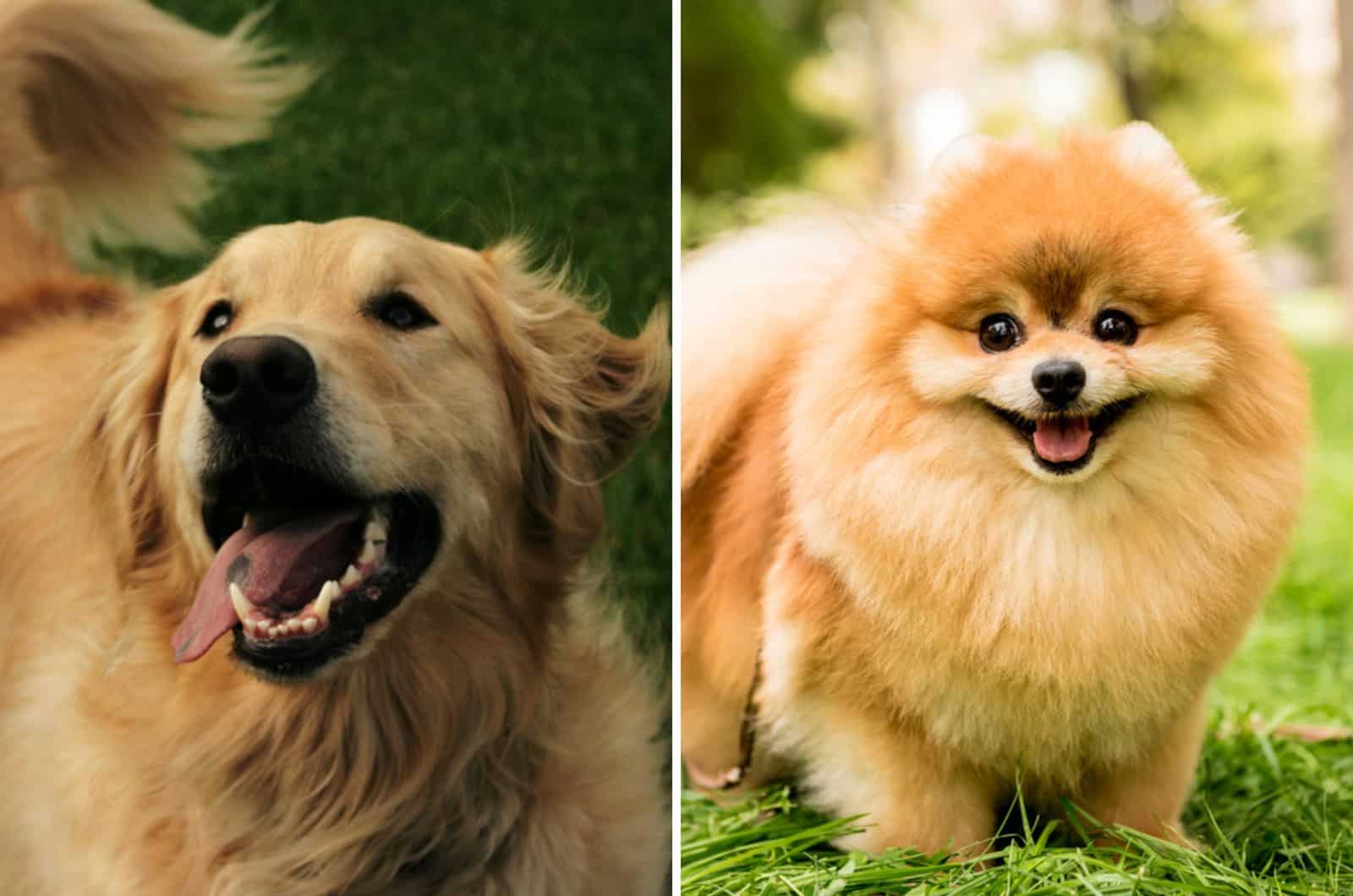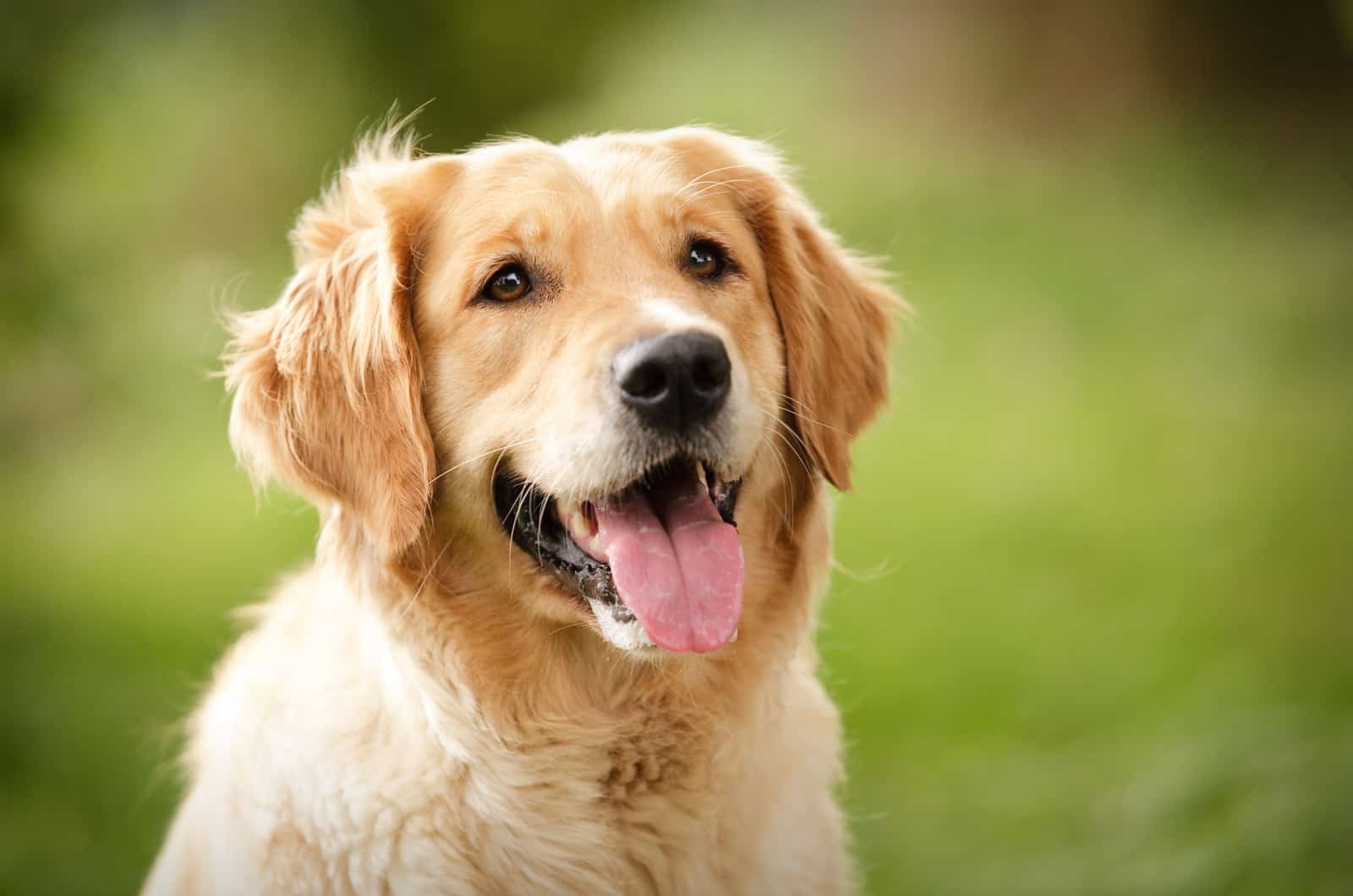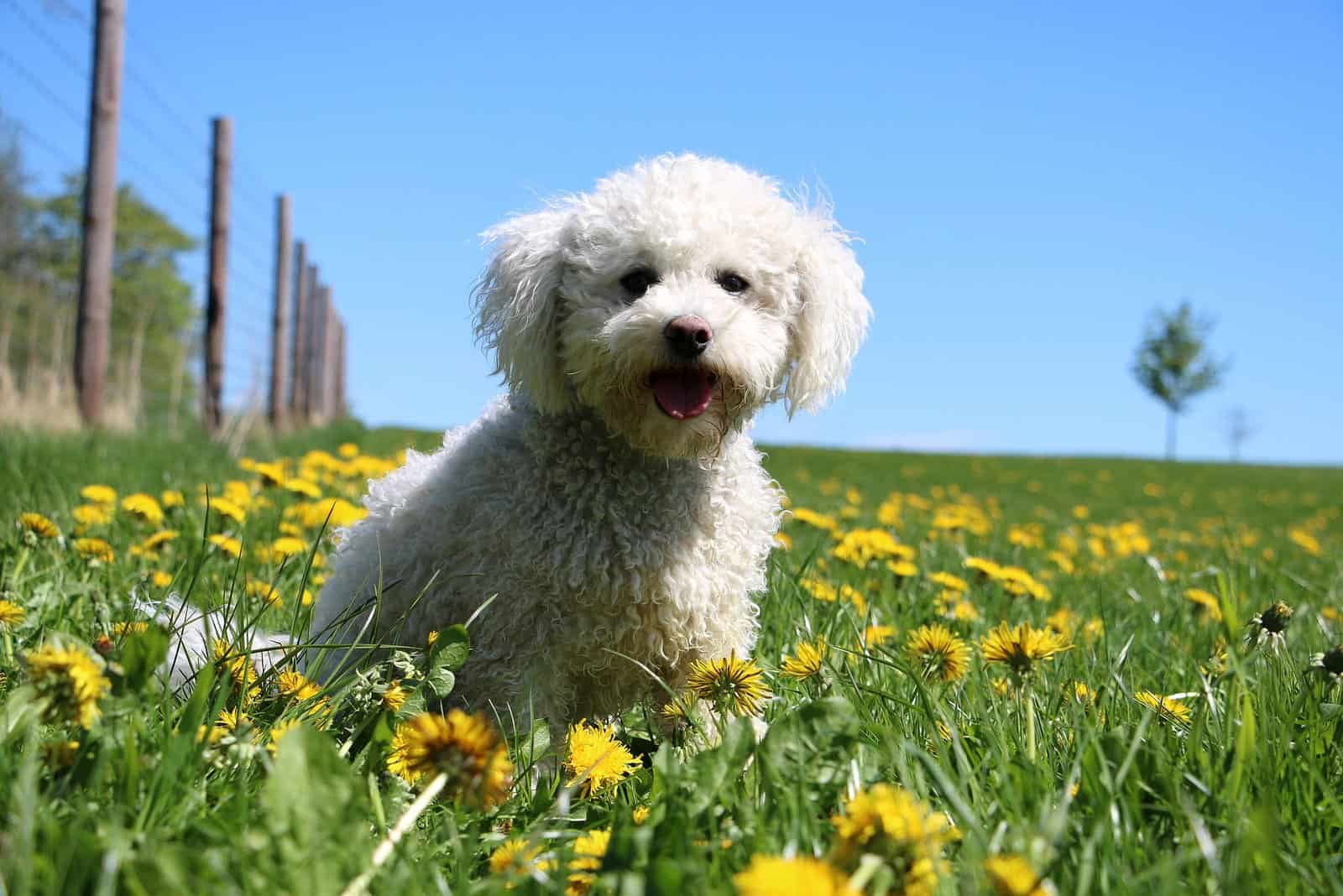It is always interesting to come across the Shiba Inu Chihuahua mix. Aside from their adorable looks, Shiba Chis can be great pets, too. However, in order to understand the full character of this designer dog, you need to do a little research yourself.
Namely, the Shiba Chi comes from two small to medium-sized, but extremely independent parents. That said, it is highly unlikely to expect your Shiba Chi to be the friendliest dog at first. Still, with proper training, lots of love, and dedication, you can make a wonderful pet out of your Shiba Chi.
Hopefully, by the end of this article, you will have a clearer picture on what exactly these cute hybrids look like, how they behave, and what makes them tick. So, let’s begin!
What Is A Shiba Inu Chihuahua Mix?
The Chihuahua Shiba Inu mix is not a rare dog breed, as both Shibas and Chis are extremely popular among dog lovers. Generally, Shiba Chis belong to the club of small dogs, as they weigh no more than 12 pounds, and they are 9 to 11 inches tall.
Still, Shiba Chi puppies with a dominant Shiba gene can appear bigger.
These Japanese-Mexican hybrids happen to be decent family dogs, as long as they are socialized from an early age. Both parent breeds have an independent character, and they appear stubborn at times. That said, their offspring, the Shiba Chi, is most likely to collect those traits, too.
Initially, Shiba puppies were used as hunting dogs in Japan, which made them vigorous, agile, and reserved to strangers. However, reputable Shiba breeders made sure these dogs developed a solid nature that is suitable for home living.
On the other hand, Chi puppies, originally coming from Mexico, carry a lot of watchdog traits despite their miniature size. That said, most Chi puppies are not a good idea for big families with small children, as their tolerance level is low.
Parent Breeds
The best way to get to know the Shiba Inu Chihuahua mix is if we start with its parent breeds.
But first, let us make a clear distinction here. Shiba dogs are not the same as Akitas. While many inexperienced dog enthusiasts happen to mix these two Spitz breeds, Akita puppies are generally bigger, calmer, and they have greater stamina.
On the other hand, Shiba puppies are generally better family dogs, as they tend to get along with other dogs and other pets easier. Furthermore, Shibas are more suitable for indoor life, as they are naturally smaller, and they need less space for movement.
On the contrary, Chi puppies are exclusively family dogs, as they don’t do well on their own. These canines are highly dependent on their owner, even though they appear reserved at times.
Now, let’s take a small tour through the review of both of these parent breeds individually.
Shiba Inu
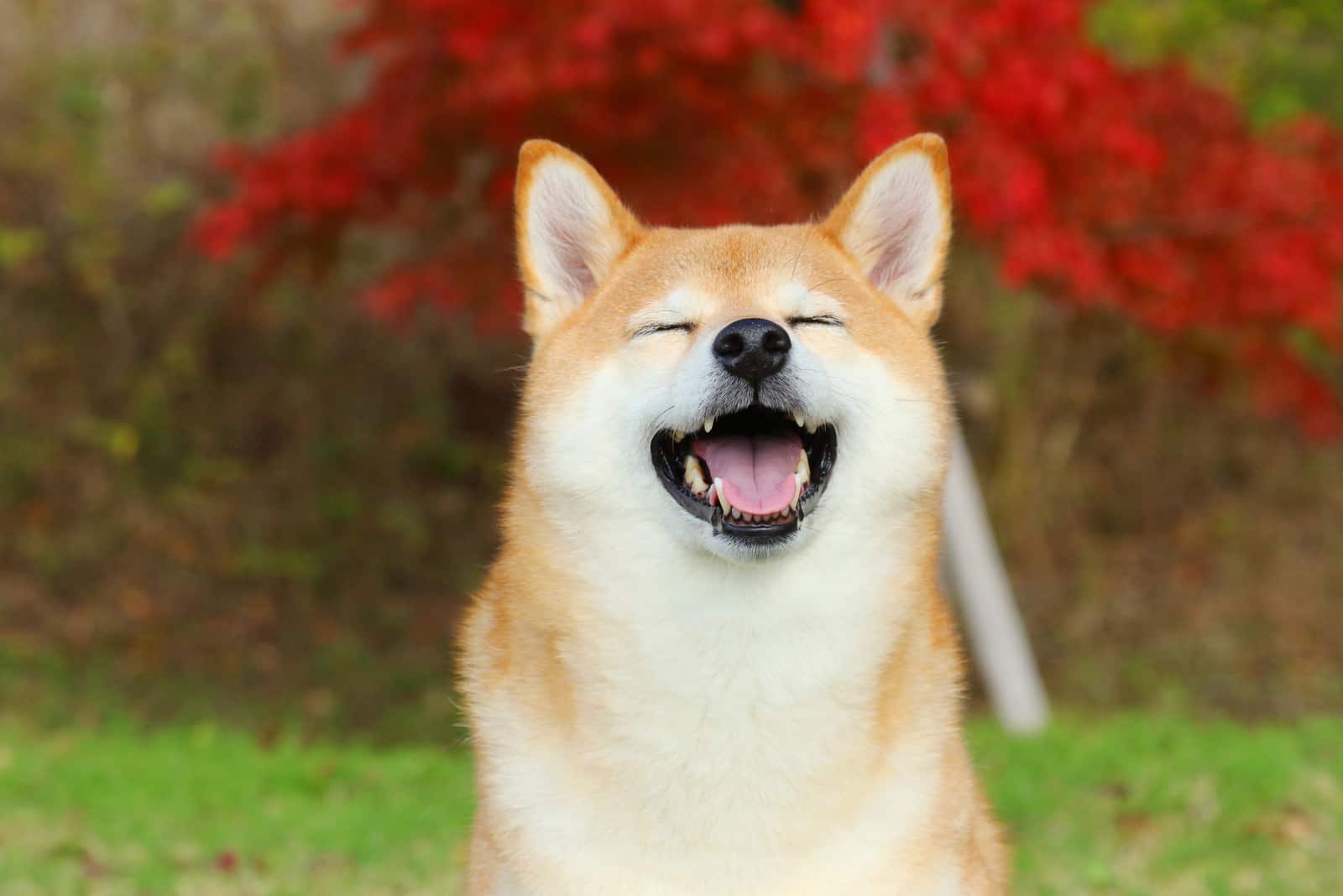
Even though they were first recognized by the American Kennel Club in 1992, Shiba puppies are probably one of the oldest dog breeds in the world. The breed has more than a 2000-year-long history, which makes them extremely popular worldwide.
These canines were originally bred for hunting small game. To this day, Shibas have a high prey drive, and they can be overly aggressive if not socialized properly. That said, these purebred canines require mental stimulation on a daily basis.
Dog toys designed for Shiba puppies are a great idea to keep them occupied and stimulated.
These canines are 14.5 to 16.5 inches tall on average. On the other hand, their average weight revolves between 22 and 23 pounds, which puts them in the medium dog club.
Shibas have a short, double coat that comes in cream, red, red sesame, and black and tan color patterns. The breed sheds moderately, which is why they require weekly brushing.
Shibas make excellent family dogs, as they are naturally affectionate, loving, and loyal. However, these canines can be stubborn at times, which is why early obedience training is highly recommended.
Shibas are relatively healthy dogs that live 13 to 16 years. However, the breed is prone to minor issues such as hip dysplasia, hypothyroidism, and patellar luxation.
Chihuahua
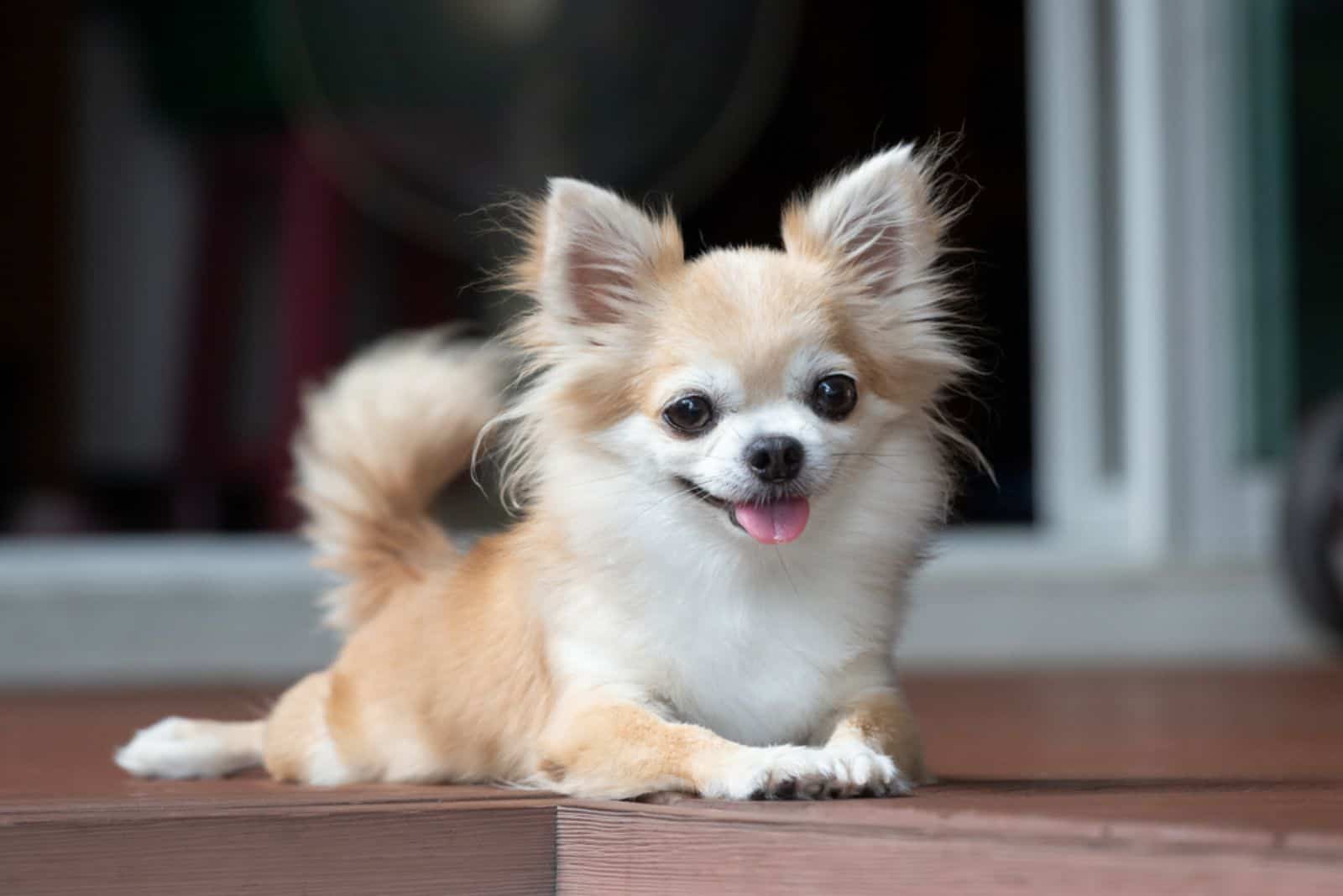
Chi dogs originally come from the Techichi breed in Mexico. This is a miniature dog breed that stands up to 8 inches in height, and it weighs no more than 6 pounds.
Due to their toy size, Chi dogs are highly sensitive. In fact, one of the reasons why Chi dogs are so aggressive is due to their natural need to protect themselves from bigger predators.
The breed has a short to medium, smooth coat that sheds moderately. Just like their Shiba counterpart, they need weekly brushing to preserve their shiny look.
Unlike Shi dogs, these miniature canines appear in a plethora of colors. The most popular ones are: black, blue and tan, black and tan, chocolate, cream, fawn, and red. However, there are more than forty Chi colors that you can find this puppy in.
When it comes to their temperament, Chi dogs are highly affectionate and friendly towards their owner.
However, they are not exactly the friendliest breed towards strangers or young children. That’s why the breed is not recommended for families with small children nor for those who are planning to have more than just one pet.
Healthy Chis can live up to 16 years without a problem. However, the breed is prone to various health issues such as hypoglycemia, dental problems, heart disease, spinal injuries, and patellar luxation.
The Crossbreed’s History
The history of the Shiba Inu Chihuahua mix is still quite vague. It is believed that the Chi Shiba Inu mix breed is more than a few decades old, as both Chis and Shibas have a long history of being among people.
Initially, Chi puppies were used as companion dogs in Mexico. It is believed that the breed comes from Techichi dogs, which were popular among Toltecs.
However, due to a familiar fact that Chis were widely used as food, there is a reason to believe these canines were quite popular among Aztecs, too.
In fact, the writer, Hernan Cortes, was the one who described the custom of raising and selling ‘‘small dogs as food’’ among Aztec people. Luckily, Chis are nowadays used as companion dogs. However, these puppies’ meat is still used in China as a traditional medicine.
Nowadays, there are six popular Chi types that are considered to be purebred.
On the other hand, Shiba dogs were initially used for hunting small birds in Japan. The breed represents a national treasure in this country, as it is believed that Shibas bring happiness. Nowadays, these canines are bred to be pets exclusively.
Physical Appearance Of A Shiba Chi
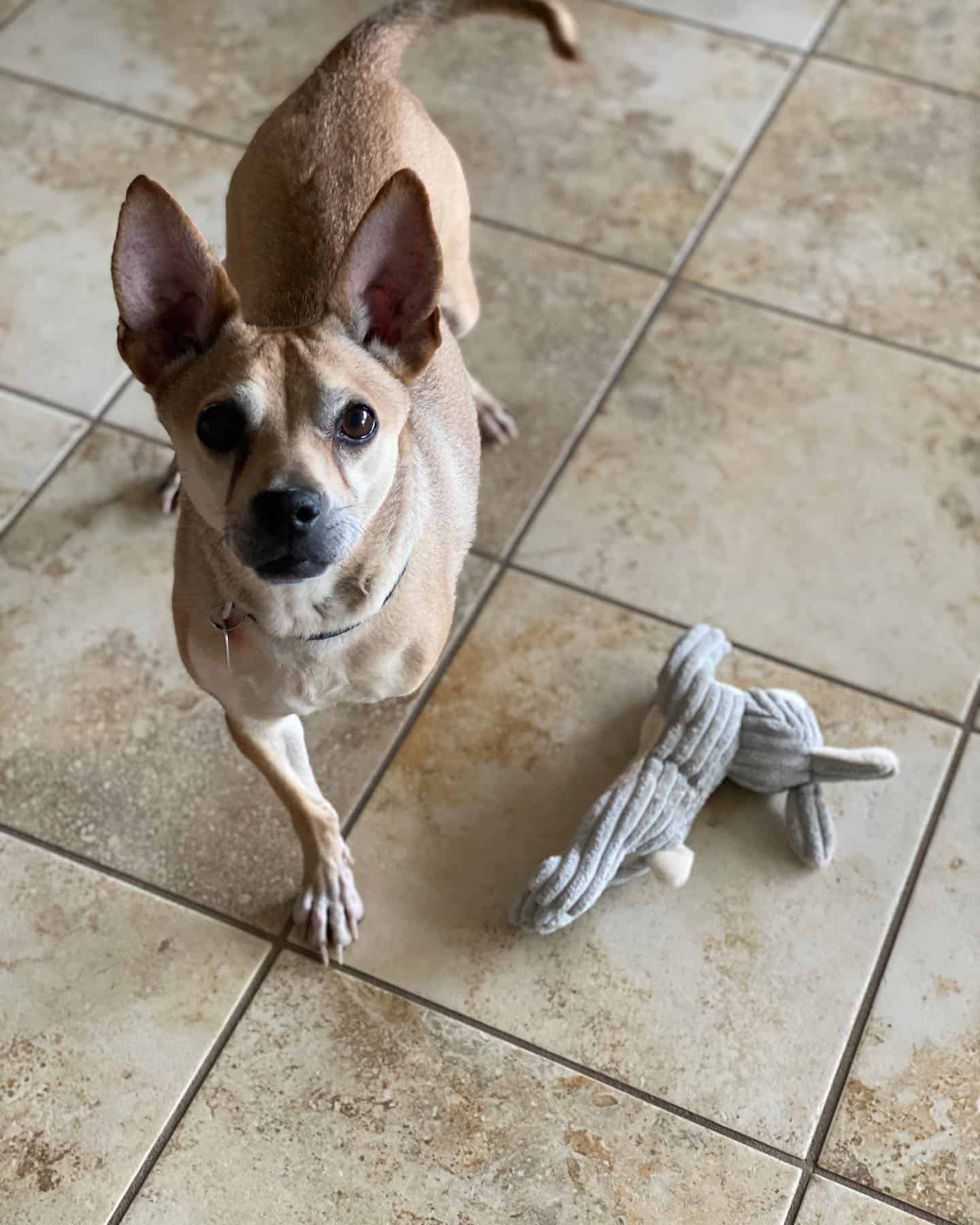
Depending on their bloodline, Shiba Inu Chihuahua mixes can appear both as their Chi and their Shiba Inu parents. Generally, these small-sized dogs are between 8 and 12 pounds in weight, and their height doesn’t exceed more than 12 inches.
While Shiba parents have a more muscular and proportionate body, that is not the case with their Chi counterpart. Chi puppies generally have a disproportionate head that appears much larger in respect to their body.
This is why Chi dogs are not popular in conformation shows nor in any dog show for that matter.
Due to their Chi bloodline, these mix dogs are highly sensitive when it comes to food. Namely, Chi puppies are easily overfed, which is why the Chihuahua feeding chart has to be strictly and carefully designed.
Shiba Chis with a dominant Chi DNA need to be properly fed, as they also tend to gain weight easily.
Unlike their Shiba parents, these canines will most likely have a small, terrier-like look that differs from the original, fox-like Shiba look.
Size And Feeding
Not all Shiba Chis are the same. That said, some puppies may appear bigger than their littermates, which gives them more of a Shiba Inu-like character. However, the general rule is that Shiba Chis belong to the club of small dogs that generally weigh no more than 12 pounds.
Adult Shiba Chis will need between a half cup and one cup of food on a daily basis. However, make sure your dog gets food that is suitable for its jaws, as the majority of Shiba Chis have dental problems caused by inadequate food.
That said, you should avoid poor-quality food brands and table scraps.
Instead, try giving your dog food that is enriched with green vegetables, fibers, and protein. Still, bear in mind that this is a small to medium-sized dog, which means that they don’t need as much protein as Bulldogs, Pitbulls, German Shepherds, Collies, or Golden Retrievers.
This is a moderately active dog that requires a light to moderate, half-an-hour exercise during the day. Unlike the aforementioned breeds, Shiba Chis are not capable of burning off so many calories with training.
That’s why their feeding chart needs to be monitored on a daily basis. Obese Shiba Chis are prone to various problems, including heart disease, dental issues, cataracts, and diabetes.
Coat Type And Coat Color
The Shiba Inu Chihuahua mix’s coat can be either short or medium-long. On the other hand, dogs with a dominant Shiba bloodline will most likely have a double coat that protects them from severe climate conditions.
If you or your family members happen to suffer from dog allergies, bear in mind that this is not a hypoallergenic dog breed. In this case, you should rather go for a Poodle, a Bichon Frise, or a Maltese.
Shiba Chis shed moderately, which is why you should brush them on a weekly basis. Bathing them more than once every three months or so will probably be too much. These canines are reasonably clean, and they don’t require as much maintenance as some different breeds.
Still, if you take your puppy out on a regular basis, make sure you make its paws, ears, and teeth clean.
The Shiba Chi puppy can appear both in Chi colors and in Shi colors, which is why you can expect to see them in cream, red, black, chocolate, fawn, or parti-color. Depending on the bloodline, Shiba Chis can have either dark brown or ruby eyes.
The Shiba Inu Chihuahua Mix: Temperament
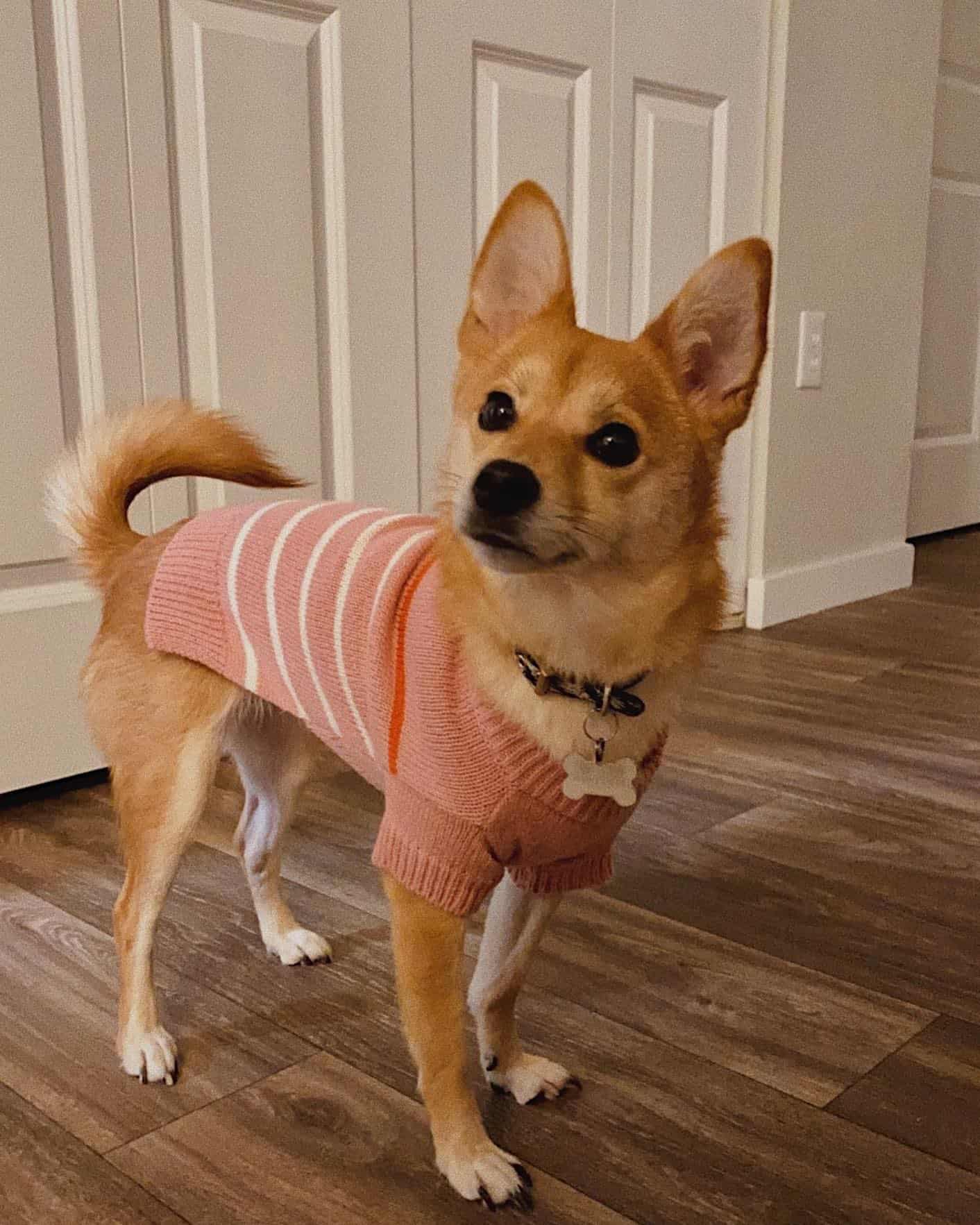
Generally, it is much easier to implement socialization training in the early stage of your pet’s life than to socialize an aggressive dog. This is something you should bear in mind when buying a Shiba Chi, as these hybrids can be aggressive at times.
Unlike some lazy dog breeds, such as Pugs, both Chis and Shibas are considered to be relatively active dogs that require mental stimulation and owner engagement. This small breed is mischievous and stubborn by default, which is why Shiba Chis are not recommended for first-time dog owners.
Interestingly, Shibas are not the only dogs from the Spitz family that happen to be high-maintenance in terms of their temperament. Husky puppies, as well as the majority of Husky mixes, are in the same club, too.
Still, early-socialized Shiba Chis tend to be more easygoing and friendly towards all family members, including kids. These little dogs require patient, experienced, and committed owners who use smart socialization techniques, such as positive reinforcement.
Luckily, these canines respond well to dog toys, snacks, praise, and petting, which is why the use of these techniques is highly encouraged during their training.
Socialization
Have you ever considered using interactive dog toys in your puppy’s socialization training? Well, you should, as Shiba Chis just love playing with toys. In fact, early mental stimulation is highly encouraged during their socialization, as these puppies love being mentally challenged.
Both Chis and Shibas are extremely intelligent dogs. Sadly, their intelligence is often overruled by their stubbornness and mischievous behavior. However, properly-trained puppies are more than just good pets, as they are a true treat for dog owners.
Socialized Shiba Chis love accompanying their owner on hikes and walks, but they will also say yes to simple frolicking in the back yard.
The important thing is to insist on early socialization as much as possible. Try bringing over a decent number of people into your home during your dog’s early puppyhood stage. That way, Shiba Chis will learn how to distinguish enemies from friends, as well as how to recognize a friendly attitude.
Naturally, neither Shibas nor Chis are open to strangers nor to other pets. Still, the first-mentioned tend to be slightly more tolerant than their Chi counterparts, as they adapt easier to new people and new environments.
Both of these AKC purebred dogs can be aggressive at times, especially towards young children and smaller pets. Shibas have a natural prey drive coming from their hunting character, while Chis have a natural terrier-like demeanor.
Housing
We cannot say that Shiba Chis are the greatest family dog breeds by default. Unlike some other breeds, these canines require a lot of work and patience. That said, you need to make sure to purchase a Shiba Chi from a reputable breeder in the first place.
Early socialization and potty training are two extremely important things that you will get from a high-quality breeder. On the contrary, you may face long days of mischievous behavior and stubbornness.
Luckily, neither Shibas nor Chis qualify among large breeds, which makes them ideal for indoor life. These canines don’t need as much space as some larger breeds. On the contrary, they will be perfectly satisfied with a small apartment.
Still, puppies with a dominant Shiba gene will require at least an hour of exercise during the day.
Teaching your Shiba Chi how to go potty will not be the easiest part of its upbringing. That’s why early potty training is a must, as puppies at eight weeks of age are more likely to adapt to a potty than adult dogs.
Shiba Chis that happen to have long hair are generally higher maintenance than their short-haired counterparts. Leaving hair trails all over the house, as well as their off-season shedding are things that you just need to get used to.
Are Shiba Chis Aggressive
Naturally, Chi dogs are classified as an aggressive dog breed due to their terrier-like demeanor. On the other hand, Shibas are not naturally aggressive, but they do have a high prey drive, which makes them more aggressive than some other breeds.
That said, you can expect your Shiba Chi to be as equally aggressive as its parent breeds.
Furthermore, there are several other case scenarios in which you can expect your Shiba Chi to act aggressively.
First, these canines will definitely respond with aggression to inadequate parenting. Yelling or screaming in front of your Shiba Chi will never be a good option. Furthermore, firm and aggressive leadership is not something that your puppy will be happy with.
On the other hand, Shiba Chis are extremely affectionate towards their owner. That being said, they don’t stand separation well. Puppies that experience severe separation anxiety are most likely to be self-destructive and aggressive.
Lastly, your dog might act aggressively in self-defense. Both Chis and Shibas have a certain dose of watchdog traits, which means that they will respond aggressively if they feel threatened.
Health Issues of the Shiba Inu Chihuahua Mix
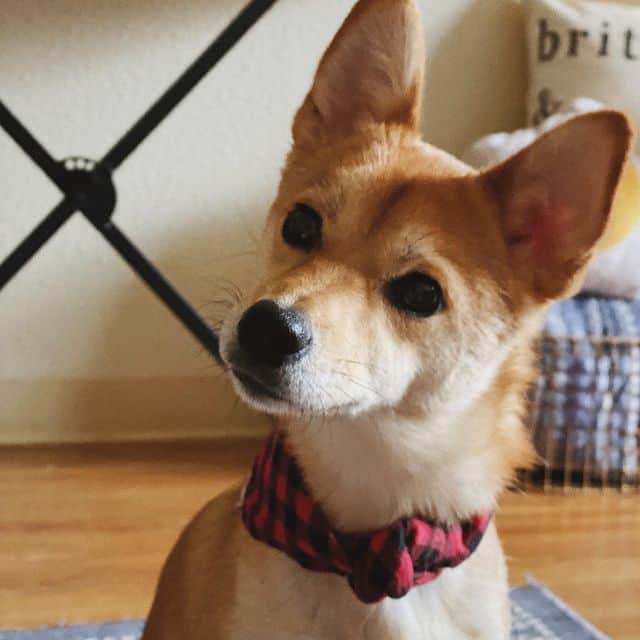
Fortunately, both Shibas and Chis qualify among the healthiest dog breeds in the world. That’s why you can expect your Shiba Chi to be healthy as well. These designer dogs have a quite respectable lifespan, as they can easily reach up to 16 years of age.
Still, these canines can experience minor health problems such as patellar luxation, heart murmur, glaucoma, cataracts, and molera.
In order to avoid these unpleasant conditions, you should subject your puppy to regular vet examinations. Additionally, if you buy a Shiba Chi from a reputable breeder, you will avoid spending extra money on healthcare, microchips, and early vaccination and deworming.
Patellar Luxation
Luxating patella in dogs is a minor condition that represents the misalignment of a dog’s kneecap. The issue is generally related to smaller breeds, and it is treated with physical therapy most of the time.
However, patellar luxation has four different grades. Grade four represents permanent dislodging from the normal position, and it usually requires surgery. The average cost of this surgical procedure revolves between $1500 and $3000.
The most obvious symptoms of this issue are hind-leg skipping, as well as locking the leg in an odd position.
Heart Murmur
Most of the time, heart murmur is harmless. It represents increased blood flow inside the heart muscle, which can cause a faster heartbeat, coughing, panting, lack of appetite, blue gums, collapsing, or even water retention.
This unpleasant condition generally disappears within the first several months of the puppy’s life. However, in some cases, this condition can be extremely dangerous, especially if it is caused by cardiac disease.
As heart murmur doesn’t have any proper treatment, you should make sure that your dog has a healthy lifestyle and healthy habits. This condition is most of the time inherited by a Chi puppy.
Chihuahuas are naturally prone to heart disease, which is why their feeding chart, as well as their activity level should be carefully monitored. Providing the healthiest dog food for a Chi would be a smart choice, as obesity and inadequate food can be triggers for severe heart disease.
Glaucoma
Glaucoma in dogs is not something you want to gamble with. Untreated eye pressure in your dog can rapidly lead to total blindness, which is why you should seek a veterinarian’s help as soon as you notice the first symptoms.
The most common symptoms of this condition are disinterest in any sort of activity, excessive sleeping, a cloudy cornea, lethargy, and continual blinking.
Unfortunately, you cannot avoid glaucoma by picking up a puppy from a reputable breeder. Both Shiba and Chi breeders will tell you that this issue is unpredictable, and it usually occurs between the third and the seventh year of a dog’s life.
Cataracts
Unlike glaucoma, cataracts in dogs can affect both senior and young dogs. This condition is mostly hereditary, but it can also be triggered by poor dietary habits. Obese dogs are more likely to be affected with cataracts, as diabetes in dogs is one of the main cataract triggers.
The most obvious symptoms of this condition are changes in eye color, changes in pupil size, scratching the eyes, reluctance to jump or climb stairs, occasional clumsiness, and total blindness.
The only way to treat a cataract in your puppy is via surgery. Unfortunately, this procedure is quite expensive, as the average cost of cataract surgery revolves between $2500 and $4000.
Molera
Open fontanelle, popularly known as molera, in Chi dogs represents a soft spot in the dog’s skull. This phenomenon is typical for young dogs, and it usually hardens within the first two months.
However, that’s not the case with all Chi puppies, as some of them happen to have molera even after the first twelve months of age. This issue is generally described as a genetic abnormality, as it is not caused by any external factor.
Puppies with open fontanelle should not be further bred, as there is a high possibility of designing more dogs with this issue.
Molera in dogs is not dangerous, as puppies with this condition can live a happy and a normal life as well.
FAQs
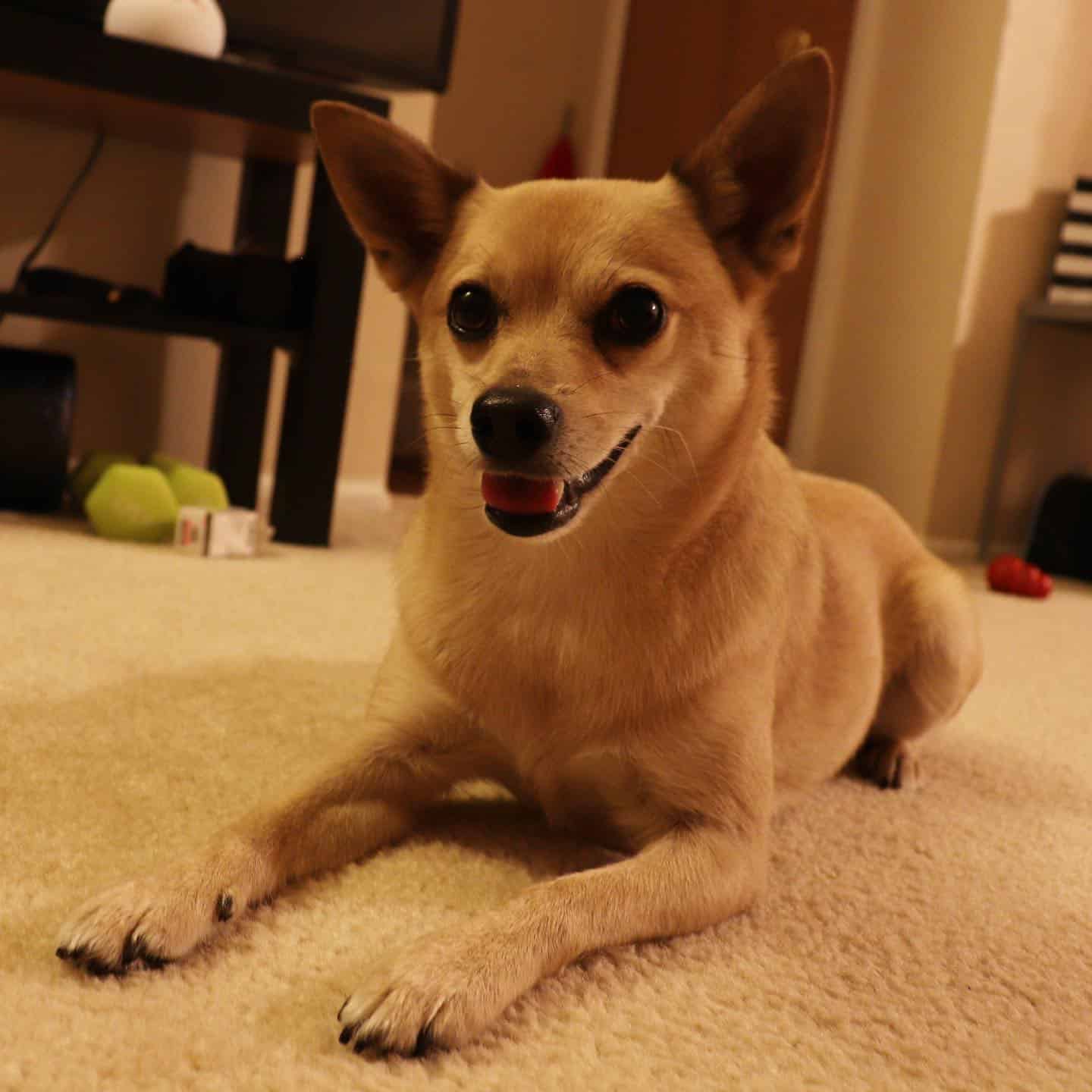
While both of these dog breeds can be extremely good pets, there are some obvious differences between Chis and Shibas.
For starters, the Shiba growth chart is drastically different from the one concerning Chi puppies. Shibas belong to the club of medium-sized dogs, while Chis are considered to be the smallest breed in the world.
Shiba puppies were originally bred for hunting purposes, while Chi puppies are companion dogs by default.
Both of these canines can be aggressive at times. However, Chi canines are known to be naturally aggressive due to their terrier-like demeanor.
Generally, Shiba puppies can be decent house dogs, as they are affectionate, loyal, and playful. However, an improperly-socialized and untrained Shiba Inu can be overly aggressive, which is why these dogs are not exactly the friendliest breed in the world.
At times, Shiba puppies have trouble adapting to a home with other pets and young children as well. Still, with early socialization and obedience training, your Shiba puppy should not have so many behavioral outbursts.
Conclusion
The Shiba Inu Chihuahua mix is a quite popular designer dog that has been among people for decades. However, these canines are not typical family dogs, as they may be overly aggressive at times. Due to their stubborn and mischievous nature, they are not considered to be the best choice for big families.
However, once socialized and properly trained, these canines can be wonderful companions that adapt easily. Fortunately, their small to medium-sized physique gives them the right to be qualified among house dogs.
Read more: Chihuahua Corgi Mix: Meet The Unusual Cross Named The Chigi

